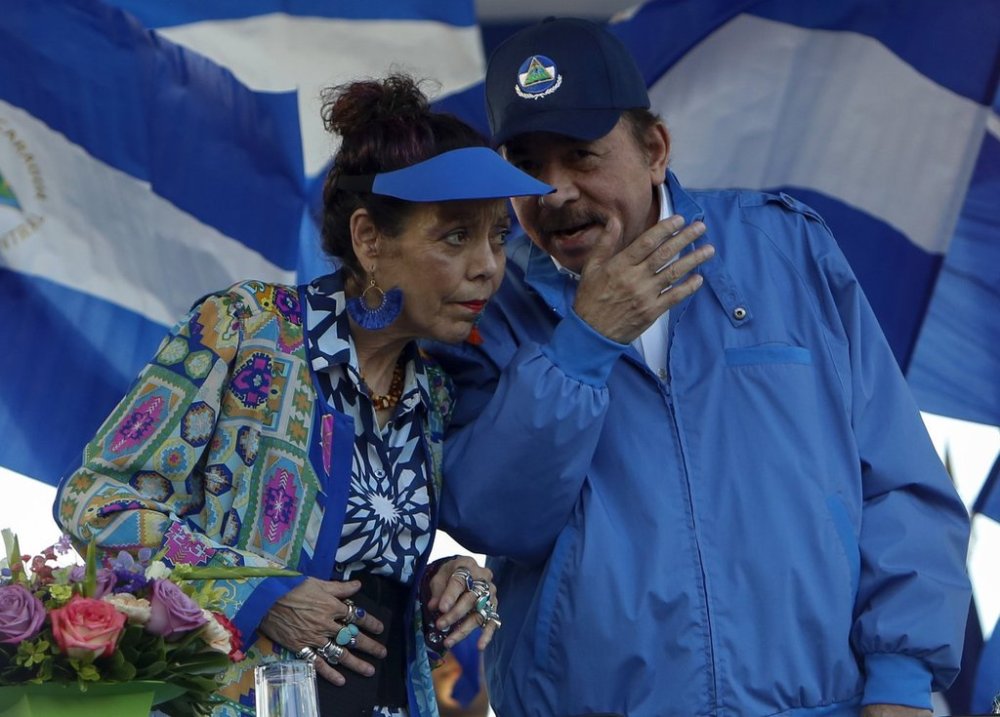UN report: Nicaragua’s human rights crisis deepens
Advertisement
Read this article for free:
or
Already have an account? Log in here »
To continue reading, please subscribe:
Monthly Digital Subscription
$0 for the first 4 weeks*
- Enjoy unlimited reading on winnipegfreepress.com
- Read the E-Edition, our digital replica newspaper
- Access News Break, our award-winning app
- Play interactive puzzles
*No charge for 4 weeks then price increases to the regular rate of $19.00 plus GST every four weeks. Offer available to new and qualified returning subscribers only. Cancel any time.
Monthly Digital Subscription
$4.75/week*
- Enjoy unlimited reading on winnipegfreepress.com
- Read the E-Edition, our digital replica newspaper
- Access News Break, our award-winning app
- Play interactive puzzles
*Billed as $19 plus GST every four weeks. Cancel any time.
To continue reading, please subscribe:
Add Free Press access to your Brandon Sun subscription for only an additional
$1 for the first 4 weeks*
*Your next subscription payment will increase by $1.00 and you will be charged $16.99 plus GST for four weeks. After four weeks, your payment will increase to $23.99 plus GST every four weeks.
Read unlimited articles for free today:
or
Already have an account? Log in here »
MEXICO CITY (AP) — A new United Nations report details a Nicaragua tightly in the grasp of co-Presidents Daniel Ortega and his wife Rosario Murillo, where the legislative and judicial branches answer to the executive and basic human rights protections are gone.
Little of that will come as a surprise to the tens of thousands of Nicaraguans who have the fled country in recent years, but the report of the U.N. High Commissioner for Human Rights discusses the Central American country’s continuing deterioration in the starkest terms.
The report scheduled to be presented in Geneva Tuesday, was compiled from more than 200 interviews with victims, witnesses and other sources. The U.N. human rights office does not have access to Nicaragua and the government did not respond to its questionnaire.

A major constitutional reform adopted in January reduces “the legislative and judicial branches to entities coordinated by and subordinated to the presidency,” while the public prosecutor’s office “was placed under direct presidential control,” the report said.
The U.N. denounced “the constitutional recognition of paramilitary forces, the institutionalized use of informant networks and surveillance and the misapplication of criminal offenses.”
“Such frameworks have created a context in which any person perceived as opposing the authorities may be subjected to retaliation,” the report said.
Andrés Sánchez Thorin, the U.N. Human Rights Office representative in Central America, said Ortega and Murillo had essentially wiped out Nicaraguan civil society.
“Since 2018, eight of every 10 organizations have been canceled or had to close, many of them religious and their assets confiscated,” he said. “Add to this a reform to the electoral system that puts political pluralism in serious danger, and with it, people’s fundamental right to participate in the democratic life of the country.”
The crackdown started with violent government repression of 2018 protests that left more than 300 dead and led to an exodus of journalists and civil society. Ortega has framed those protests as an attempted coup with foreign backing.
Since then, the Nicaraguan government “has deliberately transformed the country into an authoritarian state,” U.N. experts said in February.

